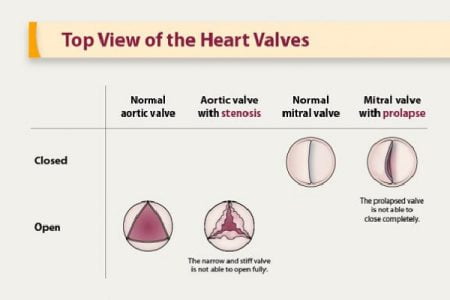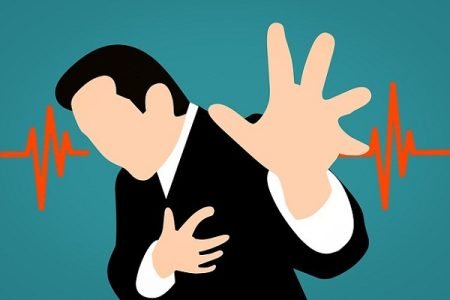What Are Abnormal Heart sounds (Heart Murmurs)?
- Updated on: Jun 12, 2024
- 2 min Read
- Published on Apr 19, 2021


Normal heart sounds
A doctor listens to your heart beats by locating his device at different places on the chest to hear the sounds produced by your heart valves when blood travels through your heart across the valves.
Normally, these heart beats produce two sounds – lub-dub. The first sound is heard as the mitral and tricuspid valves close. The Second sound “Dub” is heard due to blood slamming shut of the semilunar valves (Aortic and Pulmonic).
What is a heart murmur?
A heart murmur is the sound produced as a result of turbulence of the blood flow in your heart (during your heart beat cycles).
A heart murmur isn’t a disease in itself but may indicate an underlying heart problem.
Generally, heart murmurs are harmless (innocent) and do not require any treatment. Some heart murmurs are common and can be easily identified while others may require medical tests. Treatment, if needed, is focused on the cause of your heart murmur.
Heart murmurs can occur in babies or may develop later in life.
Heart murmurs (abnormal heart sounds) can be of various types such as:
- Galloping Rhythms
- Clicks or short, high-pitched sounds
- Rubbing sounds
- Summation gallop
Murmurs are also categorized based on whether they occur during the first sound (S1) or during the second sound (S2). On this basis, they are called systole murmurs (during S1), and diastole murmurs (during S2).
What are innocent heart murmurs?
Murmurs can occur without any medical or heart conditions or disease. These are not serious and are called innocent murmurs. Common examples of innocent heart murmurs are:
- Childhood murmurs
- Murmurs in pregnancy
Duration of heart murmurs
The duration of your heart murmurs is defined as the portion of systole or diastole that the murmur covers. Heart murmurs can be short or long. Murmurs that last throughout systole are referred to as holosystolic or pansystolic.
Pitch of the murmurs
Heart murmur’s pitch can be low, medium or high based on the frequency. A stethoscope’s bell can be helpful with low pitched sounds and the diaphragm is used for medium or high pitched sounds.
Heart murmurs symptoms
Patients who have abnormal heart sounds or abnormal heart murmurs may show symptoms or signs of the underlying disease that is responsible for the murmurs. These symptoms of the murmurs may include such as:
- Chest pain
- Fainting
- Dizziness
- Bluish skin, especially on your fingertips and lips
- Cough (chronic)
- Unexplained sudden weight gain
- Enlarged blood vessels in the neck
- Shortness of breath
- Excessive sweating with minimal or no exertion
- Enlarged liver
- Swelling
- Poor appetite in children
- Poor growth in children
When should you see a doctor?
Most of the times, heart murmurs aren’t serious. However, if you think you or your child has a heart murmur, it is better to seek consultation from a doctor.
He or she can tell you if your heart murmur is innocent and not serious and doesn’t require any treatment or if you require further examination or treatment of the underlying cause of the condition.











